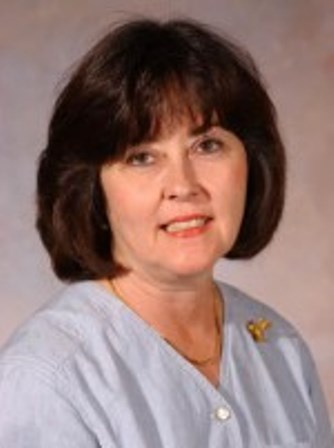Baylor Expert Shares Tips On Healthier Eating for Parents and Kids

Janelle Walter, Ph.D., shares nutritional tips for parents and children
Expert encourages ‘more home-prepared foods’
Follow us on Twitter: @BaylorUMedia
Media contact: Eric M. Eckert, (254) 710-1964
WACO, Texas (April 10, 2017) – Looking for ways to help your kids eat healthier?
In this Q&A, Baylor University nutrition expert Janelle Walter, Ph.D., professor of family and consumer sciences and Nutrition Sciences Program coordinator, shares tips to help parents and children make better nutritional choices.
Q: What are some nutritional challenges kids face today?
A: Challenges faced deal with how the family decides to prepare meals. The more home-prepared foods used, the less risk there is of eating too many calories and fat calories. Basically, parents are being encouraged to learn to cook if they don’t know how. This saves money and allows the presentation of more fruits, vegetables and dairy products, which are missing when pre-prepared products are used. Studies show there is less fat, sugar and salt in home-prepared foods. Kids also need to move more. There’s a direct relationship between sitting more than two hours a day watching TV or playing computer games and gaining weight. Daily activity of some kind for an hour will match well with a diet of lean red meat, low-fat dairy, vegetables, fruits and bread, allowing kids to be in their ideal weight range.
Q: What do you think is the biggest challenge to prepping food at home?
A: Making out a precise market order. Line up the recipes you want to cook. Make a list of ingredients needed. Mark off things you already have. Try to do five main dishes at a time. Then grocery shop when you have time and you aren’t hungry. Make time to do this. This will give your family better nutrients and less calories. Involve your children in choosing recipes, making out a market list, grocery shopping and cooking. Don’t be afraid.
Q: What are some of the best snacks for kids?
A: All kinds of fresh vegetables, fruits, cheese sticks, thin-sliced luncheon meats, snack crackers, smoothies, milk shakes made with low-fat ice cream, yogurt, homemade small pizzas (made with biscuits), popcorn, Rice Crispy bars, Rotel cheese dip, low-fat ranch dressing for vegetable sticks and a plain ol’ glass of milk or fruit juice.
Q: What are some of the most cost-efficient healthy snacks/foods to buy at the store?
A: Fresh fruit, carrots, celery, tomatoes, cheeses, crackers, applesauce and yogurt.
Q: Are there any store-bought pre-made lunches/snacks that would be good for kids?
A: I would say don’t do this. Make your own lunches. Have kids, with guidance, plan nutritious lunches, buy the foods necessary and package them together.
Q: Do you have any tips for parents making the transition from eating out to prepping more homemade food?
A: Do not be hesitant and say you don’t know how. There are many simple recipes from all kinds of websites. Southern Living has a great website. Most vegetables are cooked from 10-20 minutes. Most meats are cooked quickly in something like a George Foreman grill, and getting familiar with a Crock Pot and recipes can have a meal waiting for you when you get home.
by Kelsey Dehnel, student newswriter, (254) 710-6805
ABOUT JANELLE WALTER, PH.D.
Janelle Walter, Ph.D., is a professor of family and consumer sciences and the Nutrition Sciences Program coordinator at Baylor University. She received her Ph.D. from Iowa State University and her M.Ed. and B.S. from the University of Houston. Her research interests include food science, food acceptability, barriers to home food preparation, adolescent eating behaviors and the effect of sugar substitutes on food quality. Walter has taught at Baylor University for 34 years.
ABOUT BAYLOR UNIVERSITY
Baylor University is a private Christian University and a nationally ranked research institution. The University provides a vibrant campus community for more than 16,000 students by blending interdisciplinary research with an international reputation for educational excellence and a faculty commitment to teaching and scholarship. Chartered in 1845 by the Republic of Texas through the efforts of Baptist pioneers, Baylor is the oldest continually operating University in Texas. Located in Waco, Baylor welcomes students from all 50 states and more than 80 countries to study a broad range of degrees among its 12 nationally recognized academic divisions.